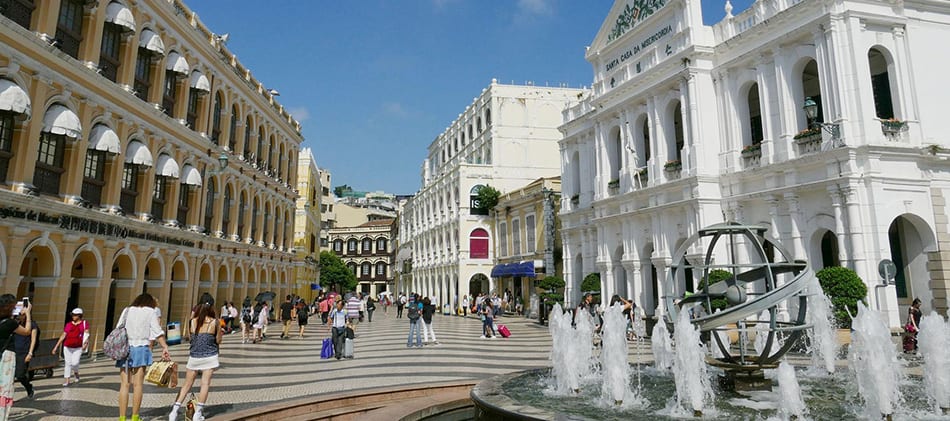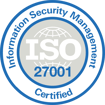Macau is a Special Administrative Region of China that shares many structural similarities with its close neighbor Hong Kong.
Macau enjoys significant autonomy: Formerly a Portuguese colony, Macau became a Special Administrative Region (SAR) of the People's Republic of China (PRC) upon reversion to China on December 20, 1999. Macau maintains a high degree of autonomy except in foreign affairs and defense, and retains its own currency, laws, and border controls. Macau does not use common law, but uses code law patterned on the Portuguese system.
Like Hong Kong, Macau is a free port with low taxation. The main export markets are Hong Kong, mainland China, EU, United States, and Japan, while imports originate primarily from mainland China, Hong Kong, EU, Japan, United States, and Switzerland.
Macau also enjoys a Closer Economic Partnership Arrangement (CEPA) with mainland China. Macau's 2003 agreement with mainland China – largely parallel to the arrangement Hong Kong enjoys with the mainland – has enhanced its economic integration with the PRC. In October 2017, Macau and Hong Kong signed a CEPA to strengthen economic and commercial relations between the two cities.
Macau is seeking to combat its overreliance on the gaming industry, through other sustainable development initiatives. The planned diversification of Macau's economy, relies amongst others on becoming a Commercial and Trade Co-operation Service Platform between China and Portuguese-speaking Countries (PALOP) and Greater Bay Area development initiatives.
Download the complete guide to setting up a company in Macau
How to set up a company in Macau
Investors and foreign entities interested in expanding their business to Macau often set up either a limited liability company (by quotas) or a branch office.
Limited liability company (by quotas)
A private company with liability limited by quotas is the most commonly used business vehicle in Macau.
This type of business entity is intended for small- and medium-sized enterprises. They are therefore less demanding in terms of set-up requirements (for example, in relation to registered capital, members, directors, and supervisors) than joint-stock companies, which are designed for larger businesses.
Private companies with liability limited by quotas require a minimum of two shareholders, each holding quotas of at least MOP1,000, up to a maximum of 30 shareholders.
The minimum capital requirement is MOP25,000. There are no requirements regarding the director's residency.
Registration steps
- Register your firm name
- Submit the Memorandum and Articles of Association
- Register your company
- Apply for taxes
Branch office in Macau
A foreign company may register a branch office to carry on profit-seeking activities in Macau. It is a representative office of a company with its headquarters located overseas. A branch office is mandatorily still involved in the same business activities as the headquarters (wholly or partially).
One needs to appoint a local legal representative with Macau address. The minimum capital requirement is MOP25,000.
For the establishment of a branch office in Macau, the following documents should be provided:
- Copy of the Articles of Association of the foreign corporation
- Minutes of the Board of Directors of the foreign corporation approving the branch establishment*
- A certificate issued by the notary in the country of origin, stating amongst others, the company is duly formed and organized according to the law.
- Letter of acceptance of appointment signed by the representative of the foreign corporation
What is the tax framework in Macau?
0/12%
Corporate Income Tax
0-12%
Individual Income Tax
0%
VAT
Macau's tax authority is the Financial Services Bureau.
Complementary tax is imposed on the worldwide income earned by Macau-registered entities (resident entities), irrespective of where their residence or headquarters are situated and irrespective of the nature of the income. The exception to the foregoing is rental income from the leasing of immovable properties located in Macau SAR, which is taxed separately under the property tax regime.
A non-resident entity is taxed only on Macau-source income. Branches are taxed at the same rate as subsidiaries.
Generally, if a foreign entity is engaged in commercial/industrial activities and/or rendering services in Macau SAR, the resultant gain from such commercial/industrial activities and/or services rendered will be subject to complementary tax.
Taxable income is the amount remaining from gross taxable income (including business income, interest income, and capital gains) in a year after deducting allowable expenses, losses, and tax-exempt items.
Expenses incurred in the production of taxable income are deductible, except those identified as nondeductible or that exceed the tax allowable limit.
According to the Macau Complementary Tax Law, assessable profit of up to MOP 600,000 is exempt from complementary tax (the equivalent of what is known as "profits tax" in other jurisdictions), and assessable profit exceeding MOP 600,000 is taxed at a rate of 12%.
Both resident and non-resident entities are subject to the same tax rates and entitled to the same tax reduction.
Fidinam in Greater China
Your one-stop solution
Fidinam is a private consulting firm founded in Switzerland in 1960. We offer tax advisory, business consulting, real estate services, wealth and estate planning, licensing and compliance, crypto and digital consulting. Our clients include individuals, SMEs and multinational companies in a wide range of industries.
With 250 employees in 16 locations and an extensive network of business partners in 90 jurisdictions, Fidinam provides innovative, personalized service and local expertise on a global scale.
Fidinam has more than ten years of presence in Asia Pacific, with offices in Hong Kong, Ho Chi Minh City, Melbourne, Shanghai, Singapore and Sydney. We provide our clients a one-stop-shop solution to set up and grow their business in the region.
Our strength is our people: a multicultural and multidisciplinary team of professionals capable to assist clients with a tailored, dedicated and boutique-style approach to their needs. Our team is up-to-date on evolving regulations, emerging markets and new
technologies.
Fidinam provides a wide range of services for clients in Greater China including Hong Kong, Macau and Taiwan. We support international clients looking to invest and set up a business in Greater China through services such as market-entry services, incorporation of the entities, accounting, tax, HR and payroll.
Vice versa, we support clients who want to expand their business abroad by leveraging Fidinam’s solid experience, knowledge and network in different jurisdictions.























